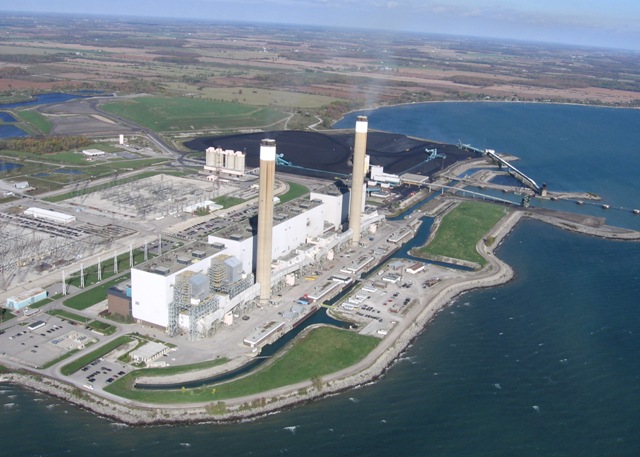The world's wealthiest nations have not yet been able to commit to end subsidies to the fossil-fuel industry, even in the face of growing alarm over climate change.
Members of the Group of 20 (G20) economies met in Beijing last week, but failed to reach an agreement on a deadline to phase out subsidies.
Environmental advocates believing eliminating fossil-fuel subsidies is crucial to lowering carbon emissions, because it will take away an artificial economic advantage currently enjoyed by the fossil-fuel industry.
CHECK OUT: IMF: Fossil Fuels Subsidies Are $5.3 Trillion A Year If Climate Costs Included (May 2015)
Government officials in charge of some of the world's most powerful economies also think that is the case.
The U.S. and China are pushing hard for an agreement on a deadline to phase out fossil-fuel subsidies, according to The Washington Post.
The two countries hope to take action while oil prices remain low.

Coal, by Flicker user oatsy40 (Used Under CC License)
However, other G20 members are not as committed to swift action on subsidies.
Within the group, there are different views on "how fast and how aggressive one can be on that," U.S. Energy Secretary Ernest Moniz, told The Washington Post and other media outlets in Beijing.
Saudi Arabia in particular has been an impediment to reductions in fossil fuel subsidies—although the country is reducing its own subsidies in anticipation of lower oil revenues in the future, Moniz noted.
MORE: Even Saudi Arabia vows to end its 'addiction to oil'
At a separate June meeting, the U.S. and China agreed to push for a firm target to be set at a meeting of G20 leaders in Hangzhou in September.
The G20 economies subsidize fossil fuels to the tune of $444 billion a year, according to a 2015 report by British think tank Overseas Development Institute and Oil Change International.
That includes $23 billion per year spent by Russia, $20 billion by the U.S., and $3 billion by China, according to the report.

Ontario Power Generation Nanticoke Generating Station coal power plant
However, the International Monetary Fund said last year that the total cost of subsidies is actually $5.3 trillion, when the costs of dealing with the effects of climate change are factored in.
Paying to both subsidize the cost of fossil fuels and to deal with the effects of burning them puts a significant economic burden on world governments.
But the use of fossil fuels is proving a hard habit to break. As the G20 countries failed to take action on subsidies, Germany also abandoned its plans for a timetable to end the use of coal for electricity generation.
A version of the climate plan leaked in May included specific provisions to phase out coal power "well before 2050," according to Reuters.
![Natural gas flaring from oil well [licensed under Creative Commons from Flickr user Sirdle] Natural gas flaring from oil well [licensed under Creative Commons from Flickr user Sirdle]](https://images.hgmsites.net/lrg/natural-gas-being-flared-from-oil-well-licensed-under-creative-commons-from-flickr-user-sirdle_100443858_l.jpg)
Natural gas flaring from oil well [licensed under Creative Commons from Flickr user Sirdle]
This original version reportedly met with heavy resistance from business groups, unions, and coal-producing regions of the country, all of whom claimed it would cost jobs.
Another proposal for an additional levy on gasoline and heating oil and gas was also cut from the revised document.
The current draft, due to be debated by the German cabinet in September, represents the latest strategy for meeting a government goal of reducing carbon-dioxide emissions by 95 percent from 1990 levels by 2050.
[hat tip: Max Looker]
Green Car Reports respectfully reminds its readers that the scientific validity of climate change is not a topic for debate in our comments. We ask that any comments by climate-change denialists be flagged for moderation. Thank you in advance for helping us keep our comments civil, respectful, and fact-based.
_______________________________________________












